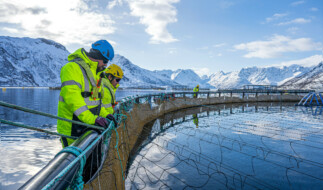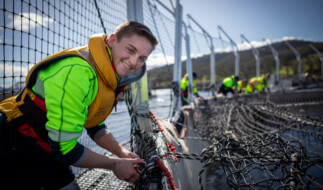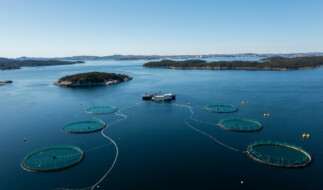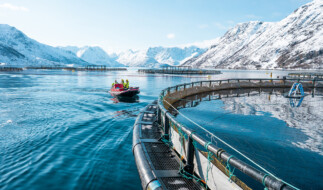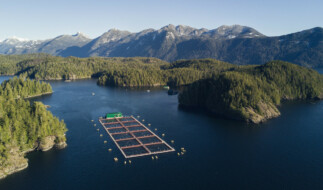GSI 2023 Sustainability Report: Advancing Salmon Aquaculture Through Collective Action
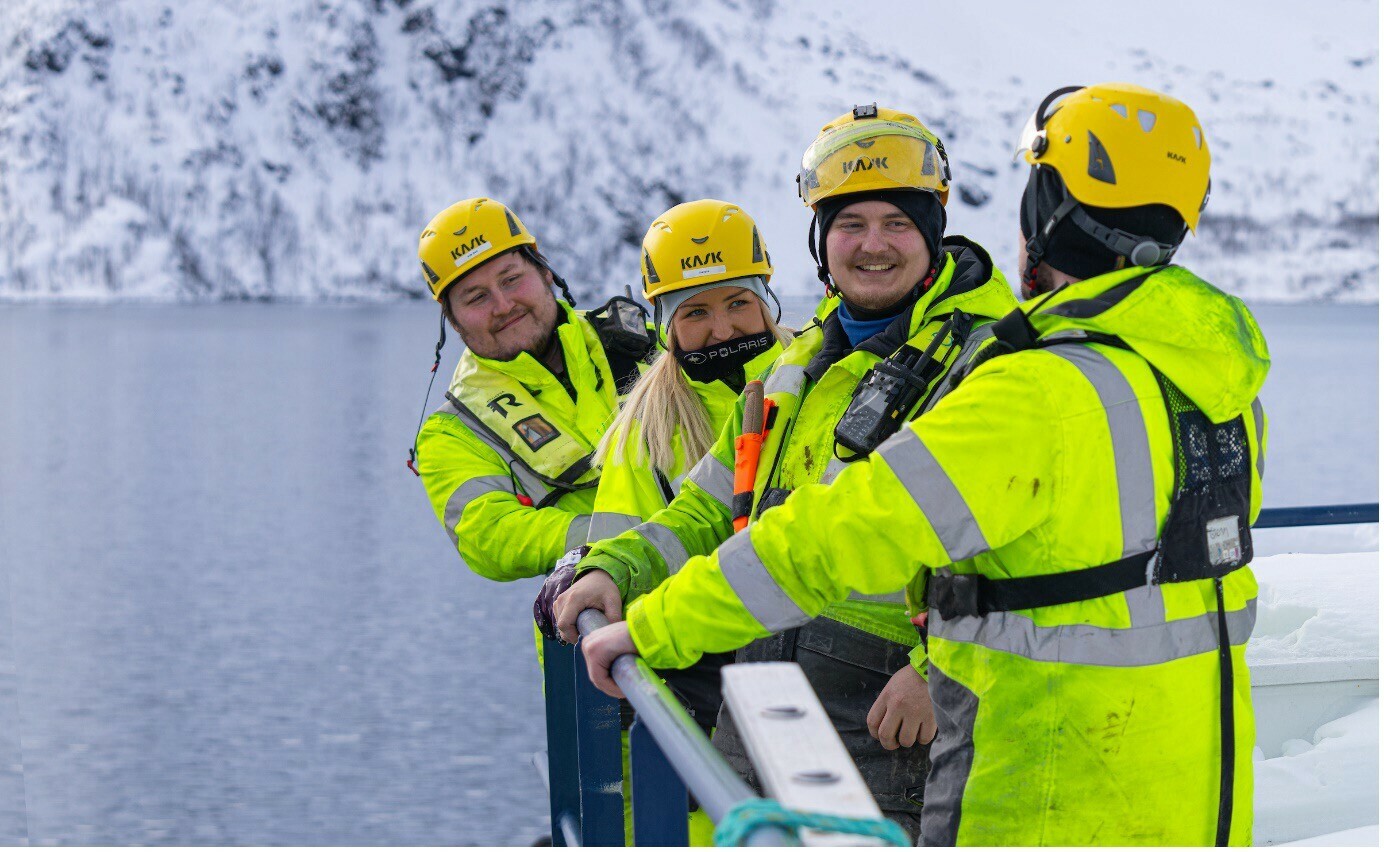
Members of GSI are dedicated to fostering transparency through rigorous reporting and leveraging insights from data to collectively improve the sustainability of farm raised salmon.
Increased transparency adds a layer of accountability to a company’s operations. With publicly available company metrics, buyers have an additional tool at their disposal to use in decision-making when choosing which product best suits their sustainability commitments.Robert Jones, The Nature Conservancy (TNC)
Pooling Data, Powering Collaboration
Within GSI, our focus is on driving change and promoting more sustainable practices in salmon aquaculture. But how can we ensure we're making strides towards our goals and affecting real change? To do this, it's crucial for our members to accurately track our performance and progression. The only way to accurately gauge our improvement is through consistent and aligned measurement methods.
One way we do this is through our annual Sustainability Report, which allows GSI members to demonstrate not only their contribution to sustainable food systems, but also hold us accountable to ambitious sustainability targets and track our progress. Using the data from GSI’s independently audited Sustainability Reports, we can identify areas for improvement, learn from each other and accelerate industry-wide change, together.
Our 2023 Sustainability Report features 2,800+ data points on 15 metrics from 14 members across the globe.
Key highlights from the report include:
Antibiotic Reduction
Our continued research, innovation, and knowledge sharing have led to a 75% reduction in the average use of antibiotics since 2013. Good fish health is our top priority, and with continued advancements, we hope to further reduce this number.
Improved Efficiency in Feed
We have achieved a 51% decrease in the average use of fish meal and a 30% decrease in average fish oil use since 2013. As we focus on improving our feeding strategies to maximize use of marine ingredients and ensure best-practices in ingredient sourcing we are able to demonstrate improvements in feed sourcing while maintaining salmons nutrient profile. With the support of our recently launched ESG feed tool we anticipate further improvements here in coming years.
Sea Lice Treatment Reduction
Through non-medicinal approaches to risk management and innovations in farming operations, we have managed a 60% reduction in average sea lice treatments since 2013.
ASC Certification
Nearly two-thirds (64%) of GSI member production was Aquaculture Stewardship Council (ASC) certified in 2023, indicating that more responsibly raised farmed salmon is available for consumers around the world.
Growing Workforce
GSI members employ over 27,000 people worldwide – a workforce that spans a variety of skills and expertise to raise thriving salmon.
From Collaboration to Change
At GSI, collaboration is not only an important part of our day-to-day work with our members, but it is central to our Sustainability Report. The report showcases over a decade’s worth of sustainability metrics, representing over 40% of the global farmed salmon industry.
We invited several partners to share why they believe that our coordinated, industry-wide effort is needed to improve transparency and drive change:
Quite simply, GSI allows for change to happen faster and at scale. Thinking about a singular company of any kind in the aquaculture sector trying to tackle the reporting of impacts is challenging. On the one hand, it may be written off as simply company advertising, but having a wider group of producers that will challenge certain claims by companies helps maintain greater integrity.Aaron McNevin, World Wildlife Fund (WWF)
Such a coordinated effort helps push companies to report more than they otherwise would have, or at least get them moving earlier. It also helps the users by providing the data in a single, easily available setting, and with common definitions, making it much easier to use.Dag Sletmo, DNB
Transparency is necessary but insufficient. Coordination enables GSI members to move more quickly and efficiently at scale to reduce key impacts.Jason Clay, World Wildlife Fund (WWF)
Harnessing the power of collective data, GSI is committed to driving lasting change not just within our member organizations, but across the industry as a whole. The path towards sustainable salmon is not a solitary one, but a collaborative effort, and our annual Sustainability Report serves as a testament to this shared commitment. As we continue to pool data, foster collaboration, and propel change, we invite you to learn more about progress.
Visit the Data Deep Dive page to follow the sustainability performance of our members over the last decade, and follow us on LinkedIn, Twitter and Instagram for news and updates on exciting new projects throughout the year.
